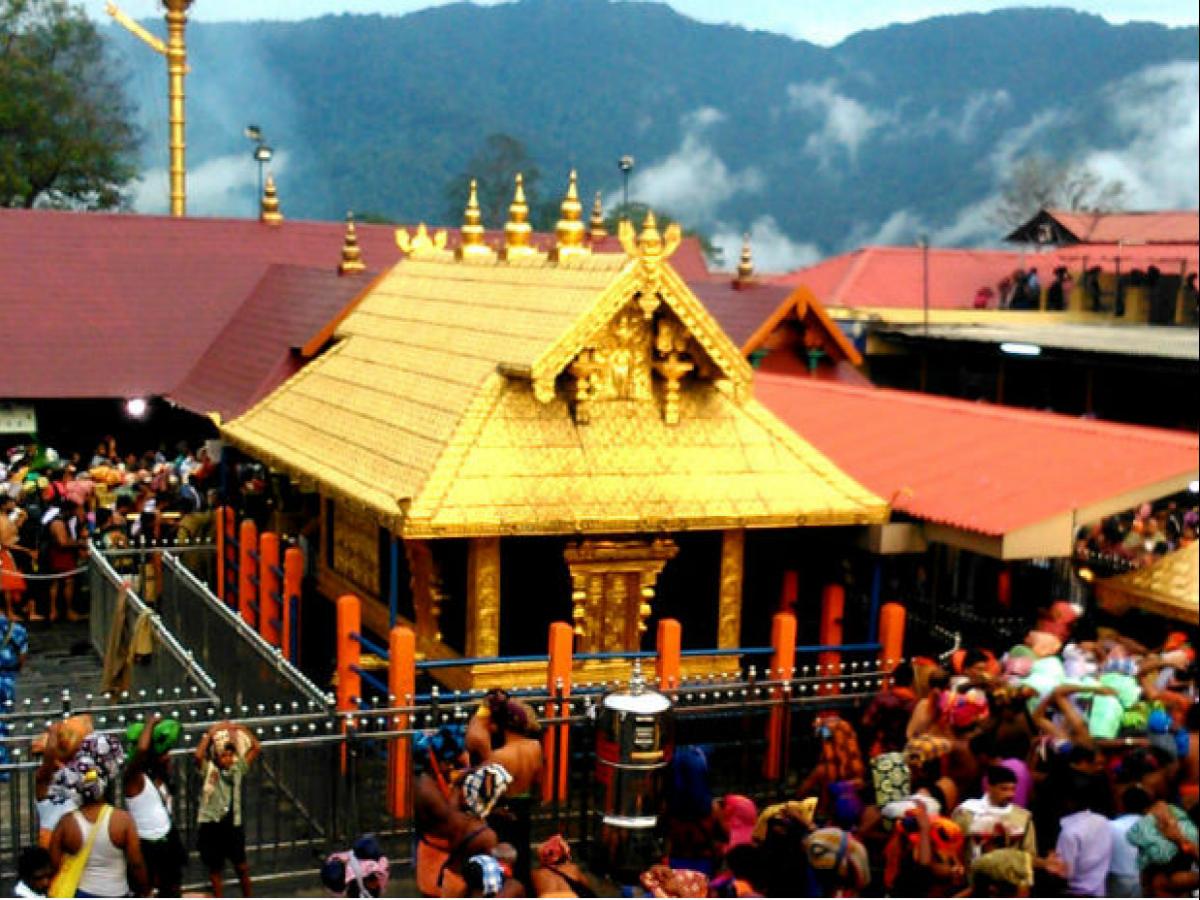Sabarimala : How religious practices conflicts with constitution?

Sabarimala is located on top of hills in Kerala’s Pathanamthitta district. Temple is dedicated to Lord Ayyappa and it attracts tourists from various parts of the world. In 1991, the High Court of Kerala encumbered the entry of women above the age of 10 and below the age of 50 in the year 1991, as they were of menstruating age. This ban on women’s entry has been practiced for centuries and the supreme court lifted the ban on September 28, 2018.
Some people clamor for the restoration of culture, and a substantially swayed by what they consider to be the past glories of India. People really want to bring back is the old pattern of society and culture, but any attempt to bring back the past will mean a perpetuation of the social inequity that afflicted India.
Some prevalent traditions of India denigrate women and make them feel not a part of society.
According, ERP (Essential Religious Practice Test) in which state can interfere in non-essential religious practices, this practice of restricting women’s because Lord Ayyappa was an internal celibate violates Article 14(the state shall not deny to any person equality before the law or the equal protection of the laws within the territory of India), Article 17(abolition of untouchability), Article 21(right to life), Article 25(Freedom of conscience (absolute) and free profession, practice and propagation of religion) and Article 26(freedom to manage religious affairs).
It is unconstitutional, invalid, and null. Religious reform is carried out as it is a non-essential feature of religion. If a particular feature of religion discriminates among people then ERP TEST will be carried out. If the feature is integral to religion will continue. To restrict women from Age 10-50 is considered an essential religious practice.
The only judge descent Justice Indu Malhotra said that court should not be given the power to judge what is essential or non-essential to a religion and you cannot search rationality in a religion.
Religion is not a matter of logic but religion is a matter of faith, said CJI Kehar.
However, discriminating one on the grounds of purity is shocking to the minds of modern India. There is no doubt that Indians of old made remarkable progress in a variety of fields, but these advances alone cannot enable us to compete with the achievements of modern science and technology. To accept the traditions on going from centuries, will definitely lead to the perpetuation of inequity which will effect the functioning of the constitution.
Ankita Sharma

